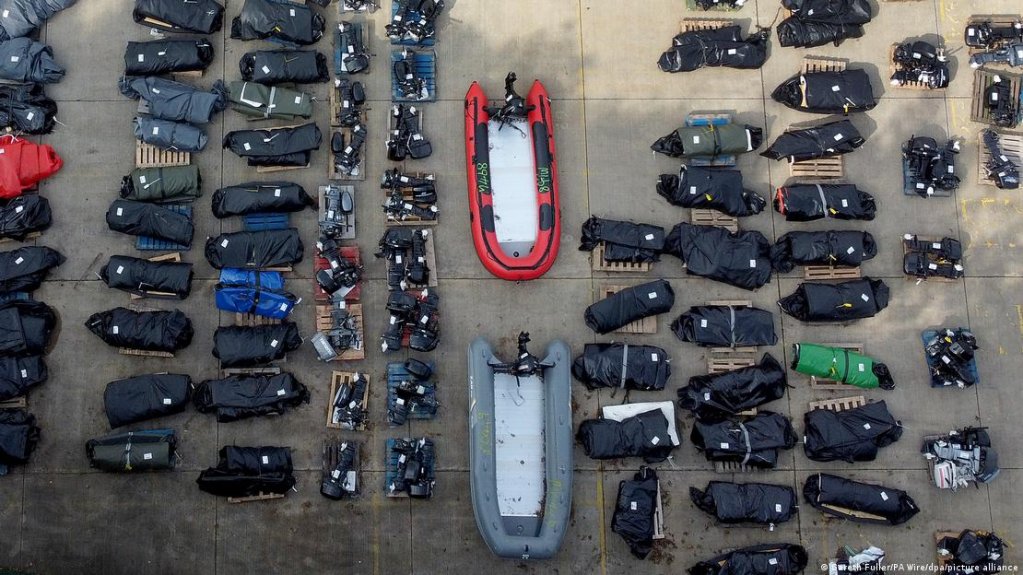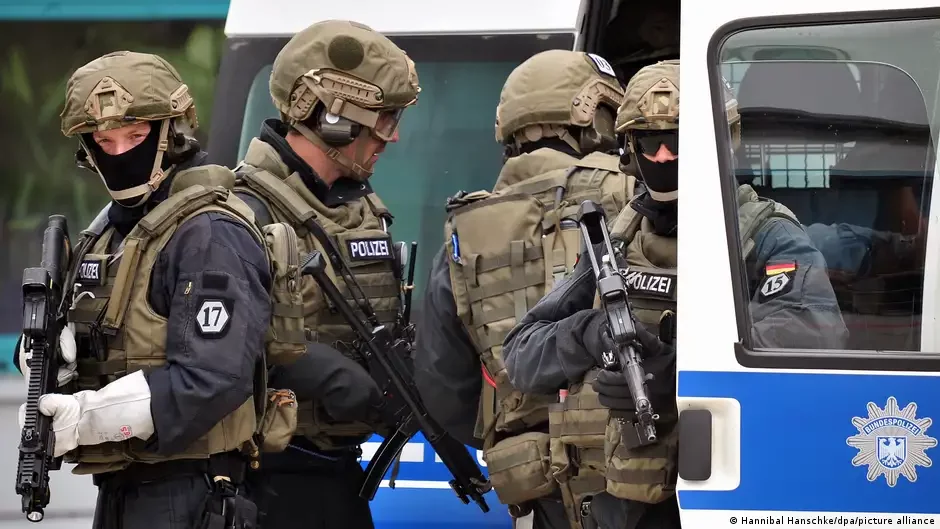Germany has become a pivotal transit point in migrant smuggling routes to the UK, with ongoing operations reportedly exploiting gaps in German law, according to a BBC investigation.
An investigation by the BBC has revealed an extensive supply route responsible for the small boat arrivals into the UK, beginning in Turkey, passing through Germany, and ending on the shores of Calais, France, before setting off toward its final destination.
The report detailed how an undercover journalist posing as a migrant who wants to attempt to enter the UK met with purported smugglers in Essen, Germany. The smugglers offered him a "package" deal for this journey, which included picking up an inflatable dinghy near Calais, France, an engine, fuel, pump, and 60 life jackets. The travel package came with a price tag of 15,000 euros (12,500 pounds). The suspected smugglers claimed that this was the same "blanket offer" they provided to fellow smugglers who have made a business of assisting people to cross the English Channel.
According to the report, prior to the meeting, the journalist received WhatsApp videos purportedly showing the dinghy. The suspected smugglers assured him that, once payment was made, a fully equipped dinghy could be placed at a location just 200 meters (655 feet) from the French shoreline, ready to depart for the UK by the following day.
The smugglers requested that the package be paid for in Turkey where the items are sourced. Payments are reportedly handled through the Hawala system, a network of agents that facilitates cross-border cash transfers, allowing smugglers to bypass formal banking checks.
Read AlsoChannel crossings: 'More people die when they set sail than on the open sea'
Dinghy: A death trap at sea
Government data shows that over 28,000 people on board an estimated 530 boats have crossed the English Channel so far this year. Around 29,000 people were detected crossing the English Channel in small boats in 2023, down from 46,000 who reportedly crossed the Channel in 2022.
Under the administration of former UK Prime Minister Rushi Sunak, the government made stopping irregular arrivals via small boats a priority.
The English Channel is one of the world's busiest shipping lanes. Its strong currents are no match for small boats and inflatable dinghies. However, danger lurks even before encountering raging tides.

In attempts to evade police patrols on the beaches, more and more boardings are reportedly taking place upstream of the Channel, on the canals and rivers that flow into the Channel. Many believe they're safer but often fall from boats and tragically lose their lives. Smugglers often load passengers onto boats already at sea, forcing women and children to wade deep into the water to board, knowing police cannot intercept migrants once they are offshore, as maritime law then applies.
Read AlsoChannel crossings: 'More people die when they set sail than on the open sea'
Germany: Hub for small boat warehouses
The meeting between the undercover reporter and the two suspected smugglers took place in Essen, Western Germany -- a pivotal transit point in migrant smuggling routes to the UK.
Essen is about 400 kilometers away from Calais, France, the starting point for small boats to enter the English Channel.
Boats, life jackets, and motors are reportedly ordered from Turkey and then transported to western Germany where they are kept in warehouses until they are ready to be sent to Calais, France, about four to five hours away.
The smugglers claimed that Essen has become a logistical hub because it is close enough to Calais to allow for the fast transport of boats without attracting surveillance.
According to research by the Global Initiative against Transnational Organized Crime, boats used for irregular crossings are typically transported by vans or cars from Germany, Belgium, or the Netherlands to the French coast. Germany is a "particularly important transit point".
Legal loopholes
Smuggling operations are also said to exploit loopholes in German law. While Germany collaborates with the UK to target smuggling networks, facilitating people-smuggling to non-EU countries like the UK is not explicitly illegal under German law. This gap has drawn criticism from UK officials, who are frustrated by Germany’s stance that “no direct smuggling” occurs since they are not neighboring countries.

Although German police have carried out arrests and warehouse raids in collaboration with international law enforcement, these have often been coordinated under Belgian and French judicial orders.
In February, a major operation involving law enforcement and judicial authorities from Belgium, France and Germany -- coordinated by Europol and Eurojust -- led to the dismantling of gangs involved in the smuggling of migrants across the English Channel to the UK.
Read AlsoGermany, France and Belgium conduct raids against suspected people smugglers
